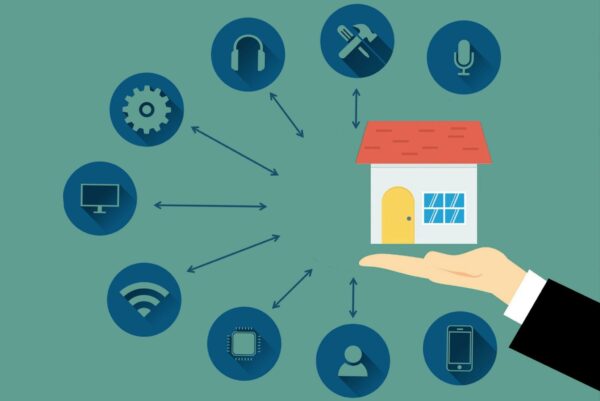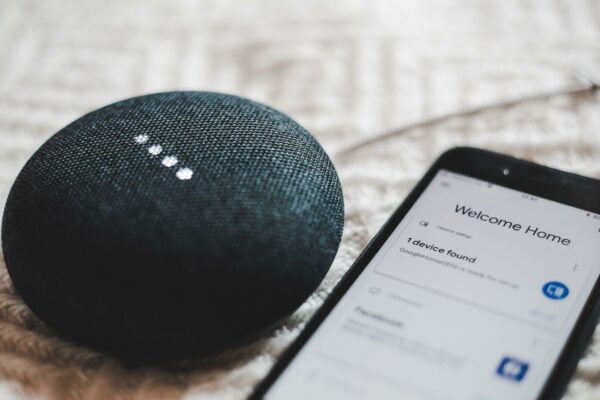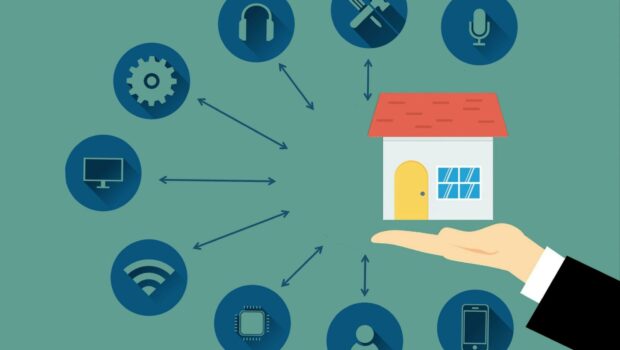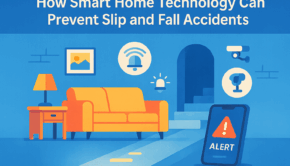Is a smart home a profitable investment?
At first glance, a smart home seems like a lucrative idea. On the one hand, this is quite promising both for buyers, and on the other hand, for manufacturers and distributors of this technology. Smart gadgets have already firmly entered our life and therefore nowadays more and more device manufacturers appear every month. Specialists of this field of activity say that the market is growing and becoming mightier. However, is it profitable for you to become a happy owner of a smart home?

According to the Consumer Technology Association. This year, the profit from the sale of smart devices will break all records and reach more than $480 billion. Among all gadgets, sales of devices for fitness, smartphones, laptops, and wireless headphones will especially grow.
Despite the daunting forecast, there are also not so promising forecasts regarding the market for gadgets for embedding in a smart home. In 2021, the level of sales will remain at $15 billion.
The competition in device manufacturing is incredible. In this regard, the price of goods is falling rapidly. However, is this the case? Perhaps the drop in sales of this technology is still due to the fact that consumers do not have much patience and people do not consider it necessary to invest their money in building a smart home.
Red flag
When we buy a new product from a line of gadgets, we expect everything to work flawlessly. However, there are numerous cases when devices installed in a smart home do not always work.
The curtains do not open at the set time, the voice assistant turns on the wrong music playlist, the thermostats stop at a certain temperature and the temperature does not rise further, the lighting does not synchronize – the most common cases of smart home owners. In such cases, you need to be very patient in order to either reboot the devices or figure out what the error is. Hardly anyone expects to call an engineer on every such occasion to help eliminate the cause of the problem. And even more so, not all owners are knowledgeable about bugs and technical errors.

As mentioned earlier, the market for the sale of such devices is growing rapidly. There appear even more gadgets and scenarios for their use. In this regard, the number of stalemate situations with such devices is growing exponentially.
When you decide to build a smart home, you will be inspired by this idea and will not be so critical about the errors in the system, but as consumers become more mature, they become more impatient. No one wants to invest in something that, due to a flaw, will not work right.
Too many sources of major concern
The sequence of actions when buying devices for a smart home is quite confusing. The first problem is even the matter of what needs to be purchased first. You can buy many different devices and only when you install them, you understand that they may, in general, not be compatible. Each device can be supported by a separate assistant such as Apple Siri, Google Assistant and Alexa.

Things that can drive you crazy: installing different assistants, updating protocols, installing a huge number of applications, teaching assistants to new speech commands.
Not losing hope
The market analysis results nevertheless indicate that everything is not so sad. Last year proved to be a watershed moment for device manufacturers. Profit increased by 5%.
Regardless of the fact that this year’s outlook is not so optimistic, analysts say that some categories will be able to show significant results. Household robots are one of the clearest examples. In addition to robotic vacuum cleaners, there are also special devices for lawn care and floor cleaning.
Emergency response system
This technology was created so that the owner has complete control over what happens at his home, even when the person is outside. At its core, the system should help avoid catastrophic consequences through a timely response system. The owner of such technology will instantly be able to find out that a gas leak has occurred, a window has been broken, a fire has occurred, or someone has broken into the house. The advantage of a smart home is that the system, in some cases, is able to independently cope with emergency events. This, in turn, will save you numerous costs.
Caring for children and investing in the future
One of the benefits of investing in a smart home is that once the system is perfect, you will leave a good legacy to your children. A family inheritance lawyer will professionally advise you and help you properly distribute your inheritance in case you have more than one child. And if you have the only heir, then this will be a profitable contribution to the future.
Eventually, on the one hand, investing in the construction of a smart home may not be the right idea right now, due to the fact that the devices are not perfect yet, and on the other hand, if you are technically savvy in technology and engineering and are able to figure it out yourself in how to set up the process, now is the most appropriate time to invest in this technology, since the prices are not yet prohibitively high.
















